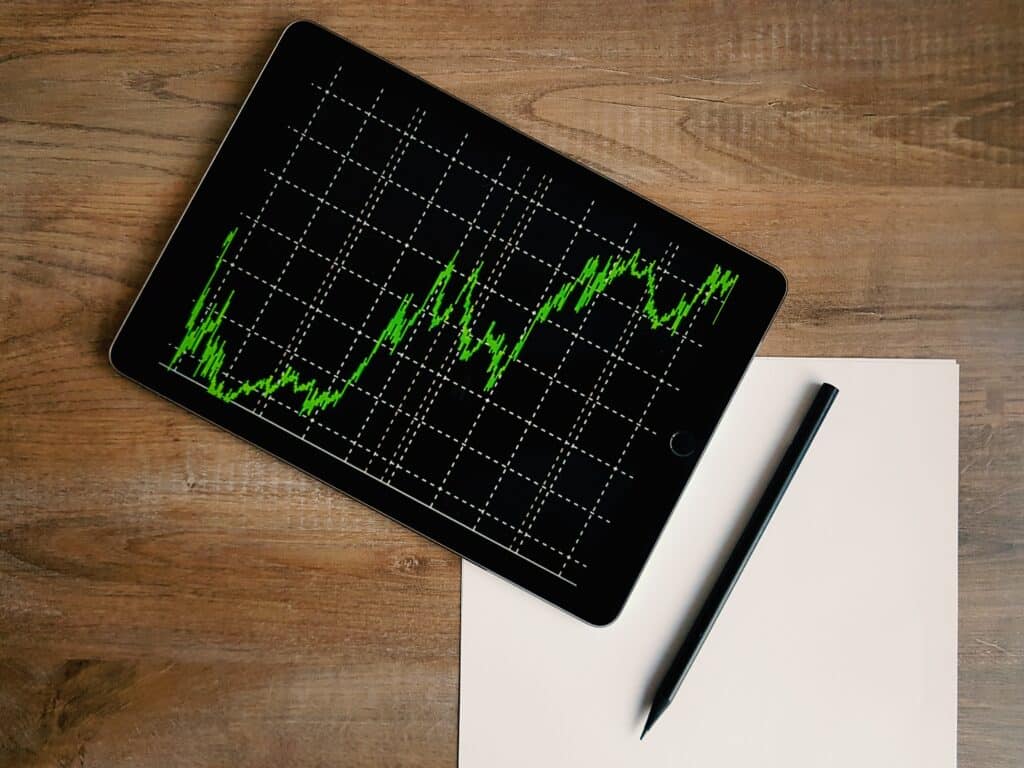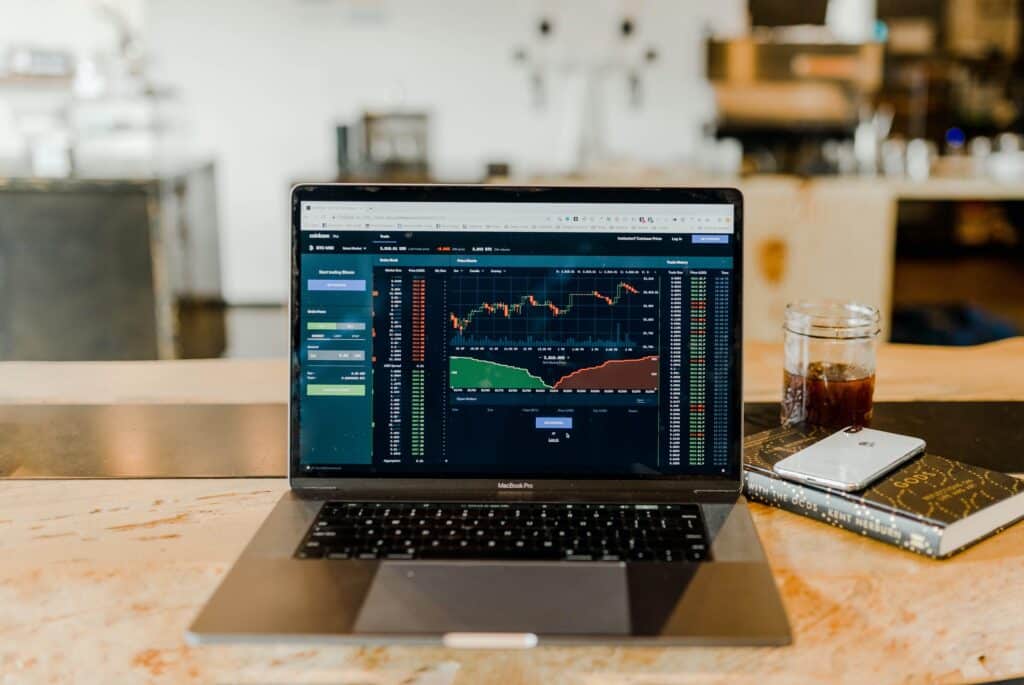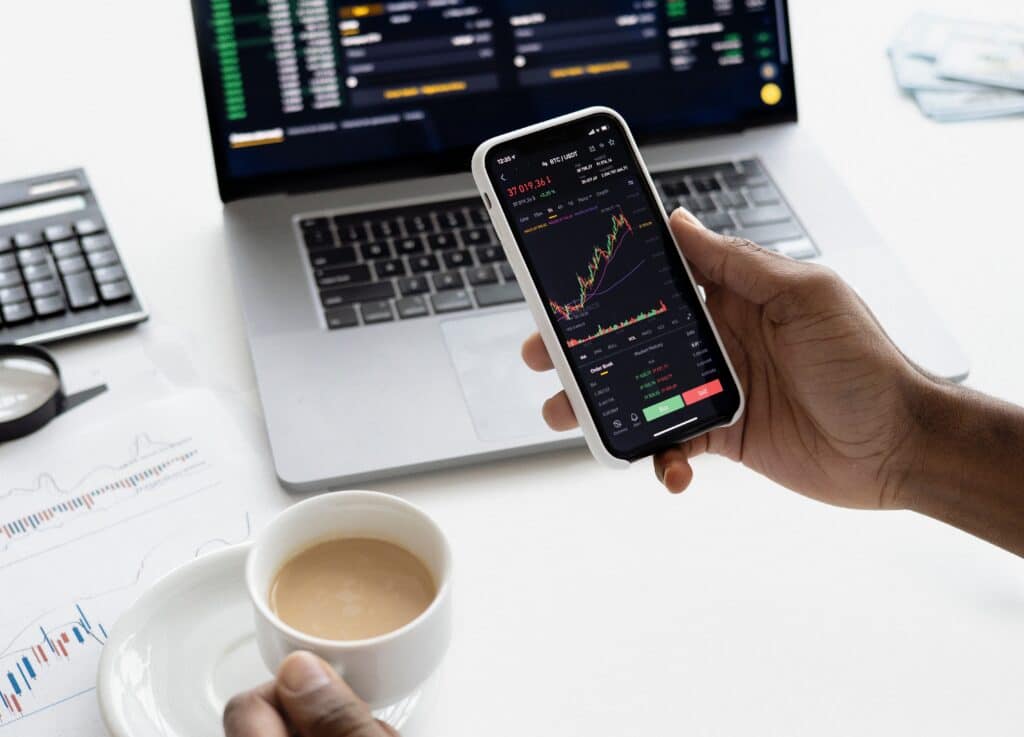
If you’re new to investing but are interested in buying stocks while in Australia, this is the page for you. At Remitly, we know there’s a lot of information and jargon to process. But, as this guide shows, getting started is easier than you’d think.
Bear in mind that this guide is just a quick overview of buying stocks in Australia, and the information provided here is not intended to be financial advice. Investing in the stock market can be risky. Consider seeking professional advice before investing in the stock market.
Basic concepts for beginner investors
Before we get into where you can open a trading account or get investment advice, let’s review some of the terms you need to know to understand stock markets.
What is stock?
Stock is a unit of ownership in a company. You’ll also see it referred to as shares. Trading shares means buying and selling units of stock through the Australian stock exchange.
What is the stock market?
The stock market or share market is where companies make their stocks available for purchase. Companies may decide to issue Australian shares when raising capital to make purchases, expand their product offerings, hire more employees, invest in new technologies, and for many other reasons.
What happens when you trade stocks?
Trading stocks refers to buying and selling shares through the stock market. When you trade shares, one person is the buyer and the other is the seller.
The buyer offers to buy the stock at a particular price through a buy or purchase order, and the seller offers to sell their stock at a particular price or trade value through a sell order. When the buy and sell orders match, a trade takes place.
Stock prices change minute by minute throughout the trading day. You make a profit if you sell a stock for more than the price you purchased it for. You will lose some of your invested money if the stock price falls below the purchase price.
The basic goal when trading Australian shares is to buy at a low price and sell at a high one.
What are dividends?
Dividends are sums of money that stockholders receive when a company performs well. The dividend amount varies, with companies usually establishing one each quarter when they make money.
Not all Australian stocks and international shares pay dividends. Generally, well-established companies are the ones that consistently pay dividends. You’re less likely to receive them when you buy high-risk stocks like those for startups.

What is the Australian Securities Exchange?
The Australians Securities Exchange is the leading trading exchange in Australia. Called ASX for short, it formed in 2006 when the Australian Stock Exchange and the Sydney Futures Exchange merged.
Normal trading on the ASX takes place from 10 AM to 4 PM, Australian Eastern Standard Time, Monday through Friday. The exchange remains closed on some holidays and closes at 2:30 PM on others.
What is a stock index?
A stock index is a group of securities that get lumped together since they have something in common like they’re from the same economic sector. The prices of these stocks get tracked together, and people involved in share trading follow the price to see how well certain areas of the market are currently performing.
In Australia, the most well-known index is the S&P/ASX 200. It contains the 200 largest index-eligible stocks featured on the Australian Securities Exchange. In U.S. stocks, major indices include the Dow Jones Industrial Average, the S&P 500 Index, and the NASDAQ Composite Index.
What are exchange-traded funds?
An exchange-traded fund or ETF is a group of shares in a particular index. Money from buyers gets pooled together to purchase the shares, increasing the buying power of everyone in the group.
An ETF can be a great way to invest if you only have a small amount of money available for trading. Buying an ETF allows you to diversify your portfolio with shares of many different companies while paying a lower share price than you would be buying each individually. Plus, you avoid the transaction costs that come with buying stocks separately.
What are managed funds?
Managed funds are similar to an exchange-traded fund in that the money that you invest gets combined with money from other domestic and foreign investors to increase your purchase power.
The biggest difference is that with a managed fund, a professional fund manager will buy and sell shares on behalf of the group. As a result, what companies you own stock in will vary over time. ETFs invest your money in a select group of shares that doesn’t change.
What are the types of shares available in Australia?
Aussie shares come in three main types:
- Ordinary shares: These are similar to common shares in US stocks. Most stocks you buy and sell on a share trading platform are ordinary shares. Buying ordinary shares entitles you to vote at shareholder meetings and to receive dividends if the stock pays them.
- Preference shares: These shares are like preferred stocks in the U.S. When you buy them, you waive your voting rights in exchange for receiving priority over other stockholders. This means you get paid first if dividends are distributed or the company goes under and needs to pay back investors by selling its assets.
- Partly-paid shares: Also called contributing shares, you don’t pay for all of the shares at the time of purchase. Instead, you pay for a portion with the understanding that the company may ask you to provide the remaining amount in the future. Generally, you receive dividends and voting rights equal to the percentage paid, such as 75% of dividends and voting rights if you pay 75% of the stock price.
Where to buy Australian stocks
Now that you have a basic understanding of the stock market, it’s time to explore where you can buy stocks in Australia. Read on to learn about the options.
Direct purchase through initial public offerings
An initial public offering or IPO is when a company first introduces shares to the market. Startups and established companies that were formerly privately owned may allow you to buy stock directly from them or an agent representing them during their IPO. In this case, you may not need to pay any transaction fees to purchase shares.
Some online share trading platforms that let you buy and sell ASX stocks also give you access to IPOs. However, when you use a trading platform to purchase IPO shares, you aren’t buying directly from the company and may have to pay brokerage fees.

Employee share schemes
With an employee share scheme, your employer allows you to purchase shares in the company at a discounted rate. In some cases, you may need to meet specific criteria to participate in a scheme, such as remaining with the company for a set number of months or years. You may also be charged a transaction fee to buy and sell shares through the scheme.
Full-service brokers
A full-service broker is someone who does the trading for you and provides you with individualized investment advice.
With some full-service brokerages, you meet with your advisor in person, while others have online brokers that will talk with you virtually. Either way, you receive hands-on assistance from interactive brokers who get to know your short- and long-term goals.
A full-service broker makes investment recommendations by analyzing market data, and they can help you determine whether a stock’s current value is a fair price. They will handle everything for you when you want to make a buy or sell order.
The personalized attention a full-service broker provides can be good for those who want to trade Australian shares but have yet to gain experience. More experienced traders may also opt for full-service brokerages if they wish to avoid investing time and effort into tracking stock performance themselves.
Because they provide more services to their customers, full-service brokers usually charge higher fees than share trading platforms.
Online share trading platforms and investing apps
Online brokerage platforms provide access to stock exchanges, so you can buy and sell stocks in Australia using your computer, tablet, or phone. To use one, you typically register for an online brokerage account and then connect it to your bank account. Once everything is set up, you can transfer money to the brokerage platform and then use it to invest.
Many share trading platforms do provide resources to help you make investment decisions, but you generally won’t get personalized advice from online stock brokers when using an online investment platform.
Although you can avoid the steep brokerage fee charges that full-service brokers provide by using a share trading platform, you will have other fees to pay.
Some platforms charge monthly fees to keep your account open. These fees may be waived if you maintain a minimum balance in your investment account. A trading platform may also assess a transaction fee each time you buy and sell stock on the share market.
How to buy and sell stocks wisely: tips for beginners

The following tips can help you buy and sell stocks wisely as someone new to Australian shares.
Start saving for retirement now
Some may feel it’s prudent only to invest when they gather substantial savings or earn a lot of disposable income. Still, for many people, it’s better to begin investing early, even if you only have a small amount of money.
Investing early is what puts more time on your side. When you begin investing for retirement at a young age, your money has more time to grow. If you get started well before retirement age, you’ll also be less vulnerable to dips in stock prices.
Hedge against inflation
As with anywhere else in the world, the cost of living in Australia is not fixed — say, the prices of goods and services go up at a rate higher than your bank pays in interest. This will diminish the value of any money you have in a savings account.
Many people like investing some of their savings in stocks to solve this problem. Investing in successful companies can potentially grow your money as inflation increases rather than see your savings lose purchasing power.
Create a diversified portfolio
Diversification is a big deal in the world of stocks. It’s generally recommended that investors spread their budget across a variety of asset classes.
A balanced portfolio may also include bonds, annuities, mutual funds, and bank certificates. Having multiple types of investments can limit your exposure to risk.
Get started with small-cap stocks
You don’t necessarily require a lot of savings to become an investor. If you’re investing on a budget, look into highly affordable assets known as penny stocks. In Australia, these typically trade for less than $5 and are often known as small-cap stocks.
There are several advantages to small-cap stocks. Due to their relatively low price, you can buy up larger percentages of the companies in question.
There’s also a lot of growth potential, as small-cap companies are often startups hungry to expand. However, the risk is greater compared to established, blue-chip firms.
These stocks may also provide a great way to diversify your portfolio. As we already mentioned, diversification is a sound tactic when investing. Buying different small-cap stocks can be an affordable way to spread your risk and protect yourself from significant losses.
Do your research
Whether you use one of the many full-service brokers in Australia or sign up for a share trading platform, do your own market research.
Look at the past performance of companies. Keep an eye on the news to learn about new research and development that may allow companies in certain sectors to go. At the same time, think about events in Australia and worldwide that might pose challenges for certain companies.
Gather information from multiple sources, so you can make an informed decision about when to buy and sell shares.
Conclusion
Now that you have a better understanding of what it means to buy and sell shares and know where you can purchase stocks in Australia, you’re ready to take the next step.
Start by researching trading platforms or full-service brokerages. Read online reviews and gather information about fees. Once you decide where to buy shares, remember the above tips as you make your first trades.
